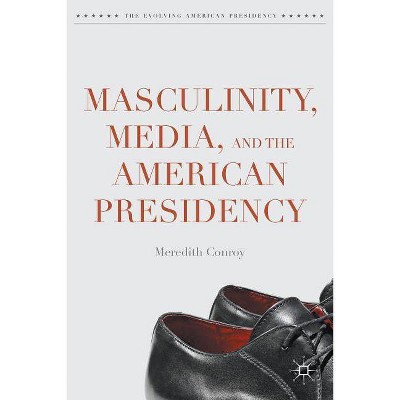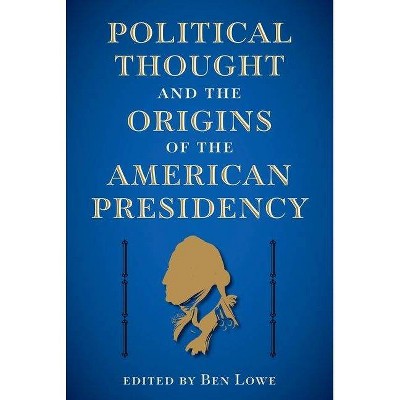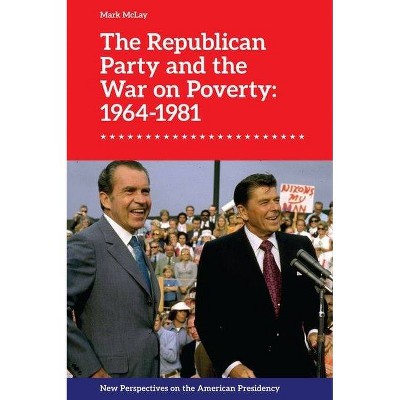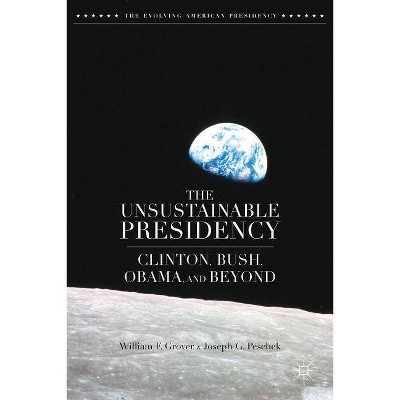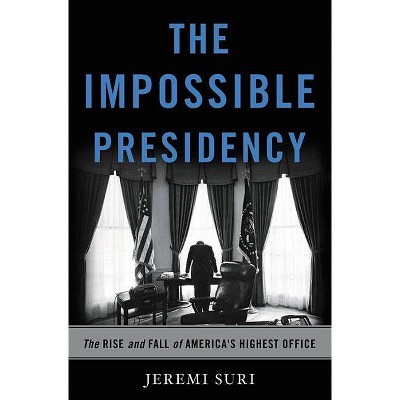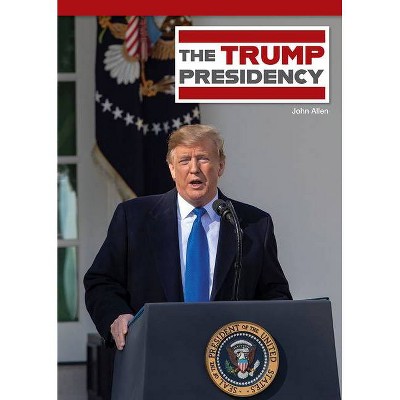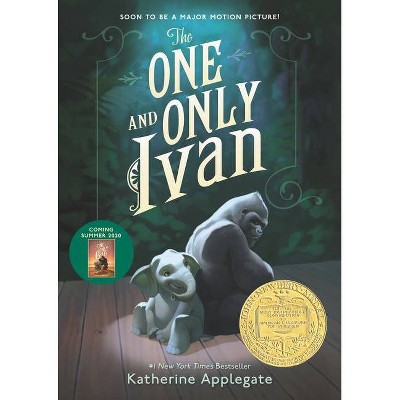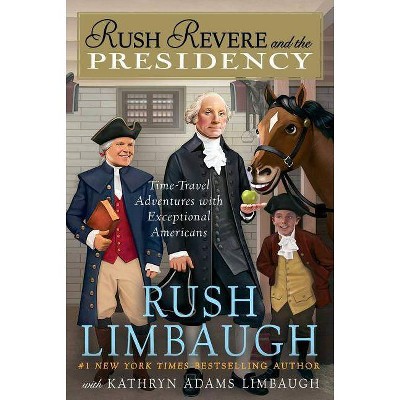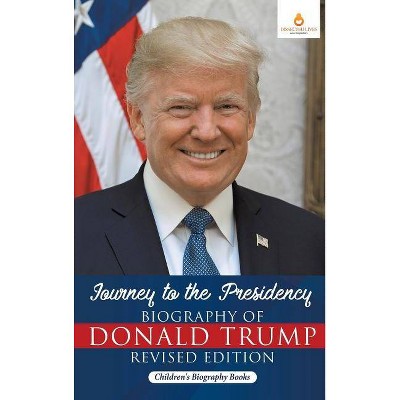War and the Rogue Presidency - by Ivan Eland (Hardcover)
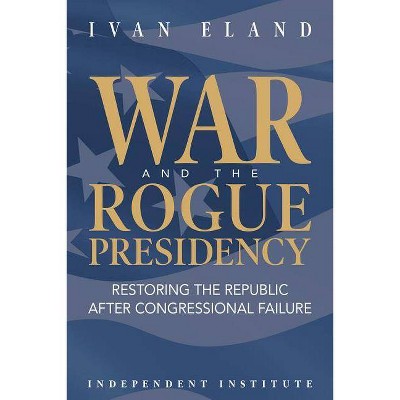
Similar Products
Products of same category from the store
AllProduct info
<p/><br></br><p><b> Book Synopsis </b></p></br></br>In <i>War and the Rogue Presidency</i>, Ivan Eland shows that almost immediately after the nation's founding, starting with the first presidency of George Washington, the executive's role in defense and foreign policy began expanding past what the framers of the Constitution had envisioned. The Constitution enshrined Congress as the dominant branch of government, giving Congress, not the President, most of the powers in defense and foreign policy. This comprehensive book shows how the presidential aggrandizement of greater powers has only been possible because of congressional abdication. However, this expansion of the executive's role was still relatively contained until the Cold War when undeclared, permanent war became ongoing policy, and then the post-9/11 war on terror dramatically expanded the President's role. Such expansion has had deleterious effects on U.S. foreign policy abroad, as well as a major erosion of the republic, its security at home, and the liberties of American citizens. <p/><i>War and the Rogue Presidency</i> is an in-depth examination of the history of the congressional-executive tug-of-war over U.S. security policy and why reclaiming constitutional standards is essential to restore both an effective national defense and civil and economic liberties. To get Congress to do that, Dr. Eland presents ways in which internal congressional incentives could be changed to provide motivation for legislative push-back. As a result, the book suggests important actions Congress could take for such a push-back along with other reforms that would effectively rein in the rogue presidency.<p/><br></br><p><b> Review Quotes </b></p></br></br><br>"Since World War II and then with the post-9/11 'War on Terror, ' the enormous expansion of presidential powers to wage permanent wars around the world has had ruinous effects on U.S. foreign policy and the liberties and security of both Americans and people worldwide. Ivan Eland's superb book <i><b>War and the Rogue Presidency</b></i> could not be more timely in examining in depth the history of the congressional-executive tug-of-war over U.S. security policy, how the imperial presidency has created and perpetuated major defense and foreign policy failures, why reclaiming congressional oversight is essential, and what specific measures can and should be adopted to restore an effective national defense and constitutional liberties. I highly recommend <i><b>War and the Rogue Presidency</b></i> for anyone." <br> --<b>Daniel Ellsberg</b>, author, <i>Secrets: A Memoir of Vietnam and the Pentagon Papers</i> and <i>The Doomsday Machine: Confessions of a Nuclear War Planner</i> <p/> "<i><b>War and the Rogue Presidency</b></i> is a fascinating history of the relationship between wars and the rise of the imperial presidency. If war is the mother of Big Government, it is also mother to presidents who used their expanded powers in ways exceeding the limits envisioned by America's Founders. The solution, Eland argues, is for Congress to restore its authority and restrain the 'creeping despotism' that has led to unbridled presidential power. Eland provides concrete steps Congress may--and should--take to keep presidents from going 'rogue.' Highly recommended!" <br> --<b>Jonathan J. Bean</b>, Professor of History, Southern Illinois University <p/> "In <i><b>War and the Rogue Presidency</b></i> Ivan Eland chronicles the rise of the imperial presidency with great insight. But does he have a solution? It's worth pondering." <br> --<b>Mike M. Moore</b>, former Editor, <i>Bulletin of the Atomic Scientists</i>; author, <i>Twilight War: The Folly of U.S. Space Dominance</i> <p/> "In the well-written and thought-provoking book, <i><b>War and the Rogue Presidency</b></i>, Ivan Eland convincingly demonstrates that the expanding power of the executive branch, which has resulted in the creation of the imperial presidency, is a result of our increasing involvement in foreign wars. A must read for those concerned about the decline of the checks and balances envisioned by our Founding Fathers." <br> --<b>Lawrence J. Korb</b>, former Assistant Secretary, U.S. Department of Defense; Senior Fellow, Center for American Progress; former Senior Fellow and Director of National Security Studies, Council on Foreign Relations <p/> "Ivan Eland's learned and balanced book, <i><b>War and the Rogue Presidency</b></i>, identifies war as one of the chief threats to the Republic, whether we win or lose, given the effect of war on presidential power. Few subjects are worthy of greater public debate." <br> --<b>Richard Shenkman</b>, Founder, History News Network, George Washington University <p/> "The seemingly permanent mobilization of American society since the Second World War to manage global security has produced a bloated, intrusive, and increasingly imperial and unresponsive federal government. In his book <i><b>War and the Rogue Presidency</b></i>, Ivan Eland sees clearly the danger to our freedom and outlines the Congressional and other reforms needed to find the path back." <br> --<b>Harvey M. Sapolsky</b>, Professor of Public Policy and Organization Emeritus and former Director of the Security Studies Program, Massachusetts Institute of Technology <p/> "After seventy years of a monolithic, interventionist foreign policy that has ruled Washington elites, the superb book <i><b>War and the Rogue Presidency</b></i> is calling for an essential, realist American foreign policy emphasizing a robust diplomacy, military restraint, and increased congressional oversight. Author Ivan Eland has assembled an outstanding and lucid, critical examination of how the Executive must be reined in from being granted unprecedented powers to wage perpetual war globally that is subverting the Constitution, costing trillions, harming millions, trampling on civil liberties, and creating more and more enemies who endanger America. <i><b>War and the Rogue Presidency</b></i> is must reading for anyone seeking a safer, freer, and more peaceful world." <br> --<b>Rand H. Paul, M.D.</b>, U.S. Senator and Member of the U.S. Senate Committee on Foreign Relations and Committee on Homeland Security and Government Affairs <p/> "<i><b>War and the Rogue Presidency</b></i> is an invaluable history of the constitutional basis for Congress's war-making power that has been all but forgotten and ignored in the last two decades; and as a bonus the book also makes a compelling case linking unapproved administrative-state operations abroad with the development of the administrative state domestically--both products of congressional abdication." <br> --<b>C. Boyden Gray</b>, former U.S. Ambassador to the European Union; former Counsel to President George H. W. Bush; former Special Envoy for European Affairs and Special Envoy for Eurasian Energy at the Mission of the U.S. to the European Union; former Counsel to the Presidential Task Force on Regulatory Relief; former Chairman of Administrative Law and Regulatory Practice of the American Bar Association <p/> "Today's domineering president and dysfunctional Congress worry Americans on the right and the left about the serious problem of the imperial--or rogue--presidency. Ivan Eland's book <i><b>War and the Rogue Presidency</b></i> explains the problem's history, highlights the combination of wars and congressional abdication that brought us to our current state, and offers an agenda to restore the Constitution's just checks and balances. There is a lot to learn from this important book." <br> --<b>Eugene Gholz</b>, Associate Professor of Political Science, University of Notre Dame; former Senior Advisor to the Deputy Assistant Secretary of Defense for Manufacturing and Industrial Base Policy, U.S. Department of Defense; author, <i>Buying Military Transformation: Technological Innovation and the Defense Industry</i> and <i>U.S. Defense Politics: The Origins of Security Policy</i> <p/> "I have enjoyed reading Ivan Eland's book, <i><b>War and the Rogue Presidency</b></i>. Given the mounting concern in our body politic about the extent to which the Congress has yielded its constitutional authority to a president prone to ignore the Constitution and take the expedient course without consultation with the people's representatives, it is very timely. It documents the sad series of executive usurpations of legislative authority that have transformed the American republic into a warfare state headed by an elected despot. It concludes with numerous recommendations for remedial action to restore the legislative power and the civil liberties our founding fathers considered essential to preserving our liberties. <i><b>War and the Rogue Presidency</b></i> is must reading for anyone concerned about presidential overreach and the demise of the checks and balances of our constitutionally mandated separation of powers." <br> --<b>Charles W. Freeman, Jr.</b>, former U.S. Ambassador to Saudi Arabia; former Assistant Secretary of Defense for International Security Affairs; Chairman, Projects International, Inc. <p/> "Once more in <i><b>War and the Rogue Presidency</b></i>, Ivan Eland has given us a book that challenges orthodoxies on the left and right. A century ago, in the midst of World War I, Randolph Bourne warned that 'war is the health of the state.' Subsequent experience has made it necessary to sharpen that point: war is the health of the presidency. Eland attributes the enormous power the executive wields at home and abroad not to some purportedly inevitable forces of modernization but to executive calculation and Congressional abdication. He calls for Congress to reassert its Constitutional war powers and recalibrate the balance of power in DC. His proposals will provoke both liberals and conservatives. Few readers will be left indifferent to Eland's call to abolish the Electoral College." <br> --<b>Richard M. Gamble</b>, Anna Margaret Ross Alexander Chair in History and Politics, Hillsdale College; author, <i>The War for Righteousness: Progressive Christianity, the Great War, and the Rise of the Messianic Nation</i> <p/> "Ivan Eland is one of America's top experts on U.S. presidents and their conduct of foreign policy. <i><b>War and the Rogue Presidency</b></i> is his finest book so far, and it provides a searing indictment of rapidly growing presidential abuses. Eland shows how an out-of-control imperial presidency is not only destroying America's reputation abroad, it is undermining our entire constitutional system of government and inflicting fatal wounds on the domestic liberties Americans cherish. War and the Rogue Presidency is essential reading for anyone who wants to help reverse that ominous trend." <br> --<b>Ted Galen Carpenter</b>, Senior Fellow for Defense and Foreign Policy Studies, Cato Institute <p/> "Few readers, even those who start from very different political principles, will fail to be impressed with Ivan Eland's passionate, provocative and historically informed case against the 'Rogue Presidency' and his call for returning the power to declare war to the Congress. <i><b>War and the Rogue Presidency</b></i> is a timely and important book." <br> --<b>Hugh T. Rockoff</b>, Distinguished Professor of Economics, Rutgers University <p/> "In this fine book, Eland interweaves constitutional theory and micro-history to produce a thoughtful and insightful analysis of the war-making powers of the American President. He is relentless in his critique of both Presidents who have transgressed and Congresses which have allowed transgressions. <i><b>War and the Rogue Presidency</b></i> both extends and focuses Eland's earlier work on the fabric of power in the United States." <br> --<b>T. Hunt Tooley</b>, Professor of History, Austin College; author, <i>The Western Front: Battleground and Homefront in the First World War</i> <p/> "In the past half century, Americans suffered serious threats to their civil liberties and Constitutional rights during the Vietnam War (Richard Nixon and Watergate), the war in Central America (Ronald Reagan and Iran-Contra), and the post-9/11 'war on terror.' Ivan Eland's important book <i><b>War and the Rogue Presidency</b></i> not only traces the connection between war and growth of the 'imperial presidency' from the earliest days of our republic, but shows that our current national policy of seemingly permanent conflict abroad puts our rights at home very much at risk today. Just as important, he offers practical suggestions for ways that Congress might reassert its Constitutional powers in foreign policy to rein in an overweening executive branch." <br> --<b>Jonathan V. Marshall</b>, author, <i>The Lebanese Connection: Corruption, Civil War, and the International Drug Traffic</i> and <i>The Iran-Contra Connection: Secret Teams and Covert Operations in the Reagan Era</i> <p/> "Ivan Eland's book <i><b>War and the Rogue Presidency</b></i> substantiates five important facts. First, wars have allowed U.S. presidents to break free of the constitutional chains that limit executive power. Second, presidents are power seeking and thus incentivized to engage in war to enhance their domestic policy prerogatives. Third, the original constitutional republic is incompatible with and being increasingly undermined by rogue, a.k.a. imperial, presidents. And, fourth, now that the chains of the Constitution have been replaced with ropes of sand, a plebiscitary despotism is emerging with the president at its head. However, Eland doesn't leave his readers hopeless. His proposals for remedying the problem of the rogue presidency may or may not succeed, for a variety of reasons. Nevertheless, in a worse-case scenario it is not unimaginable for a president to go rogue and declare war on his own domestic enemies. Today presidential powers are so vast that some future president may decide to establish the circumstances (i.e., create the crisis), and then proceed to remedy it (i.e., war). This isn't the soft despotism of bureaucratic usurpation of property rights for which we've become accustomed, but despotism with bullets flying. If this seems to be ridiculous, read <i><b>War and the Rogue Presidency</b></i> and then judge for yourself." <br> --<b>Marshall L. DeRosa</b>, Professor of Political Science, Florida Atlantic University <p/> "For America's elites, no cash cow is more sacred than the military-industrial complex. Six decades after President Dwight Eisenhower warned against it, Ivan Eland shows how the refusal of Congress to meet constitutional responsibilities has led to a warfare state--with consolidation of undemocratic power in the White House. <i><b>War and the Rogue Presidency</b></i> offers a methodical indictment of congressional complicity that has ushered in perpetual war. This book challenges readers across political spectrums to face the dire realities of red-white-and-blue militarism run amuck. While spelling out how powerful forces have turned Congress into an accessory to normalize ongoing warfare, the author also provides clear ideas for how the legislative branch could end its capitulation to a brutal war machine." <br> --<b>Norman Solomon</b>, Founder and Executive Director, Institute for Public Accuracy; author, <i>War Made Easy: How Presidents and Pundits Keep Spinning Us to Death</i> <p/> "Ivan Eland's important book <i><b>War and the Rogue Presidency</b></i> exposes the dangerous and often quasi-dictatorial power that U.S. presidents have amassed since the 20th century and how that power has resulted in a long and seemingly endless series of disastrous wars. Thankfully, Eland also provides a list of practical, concrete ways Congress and U.S. citizens can reclaim power from the executive and create something far closer to true democratic governance in this country." <br> --<b>David Vine</b>, Professor of Anthropology, American University; author, <i>Base Nation: How U.S. Military Bases Abroad Harm America and the World</i> <p/> "Thoroughly researched and informative, the valuable book <i><b>War and the Rogue Presidency</b></i> traces the history and evolution of excessive Presidential authority, explains how this accretion of executive power is contrary to the Constitution and the vision of the founders, and argues for urgent measures to restore congressional authority and limit the ability of Presidents to drag the nation into unnecessary and unwinnable wars." <br> --<b>David Cortright</b>, Director of Policy Studies, Kroc Institute for International Peace Studies, University of Notre Dame; Chair of the Board, Fourth Freedom Forum <p/> "A timely and extraordinary contribution to the current on-going national discussion over separation of powers with respect to our Federal government, <i><b>War and the Rogue Presidency: Restoring the Republic after Congressional Failure</b></i> is a critically important and unreservedly recommended addition to both community and academic library Contemporary Political Science collections--as well as a 'must read' study for political activists and non-specialist general readers with an interest in the subject." <br> --<b><i>Midwest Book Review</i></b> <p/> "In his latest book, <i><b>War and the Rogue Presidency</b></i>, author Ivan Eland calls out Congress for surrendering its war-making power to the president. . . . While Eland expertly identifies several reasons for the legislative branch's export of its power of making war to the executive branch, he points to partisanship as perhaps the most relevant reason for that relinquishment. . . . No one who's taken even peripheral notice of the behavior of lawmakers--federal and state--and their inclination to put faith to party above faith to principle could disagree with Eland. Eland's expert examination of the manifold ways political parties and their leadership structure contribute to congressional willingness to rubber-stamp executive combat operations reminds readers of John Trenchard's savage discourse on the real purpose for a politician's fidelity to his political party. . . . In <i><b>War and the Rogue Presidency</b></i>, Eland examines why a president would want to possess a power considered by most lawmakers to be politically fatal to their congressional careers. . . . Unlike most contemporary critics of the never-ending wars, most of which are begun by the president, Ivan Eland not only diagnoses the disease, but he suggests a course of treatment that could, if followed faithfully, cure it. . . . And that is a call to action we can eagerly endorse." <br> --<b><i>The New American</i></b><br><p/><br></br><p><b> About the Author </b></p></br></br><b>Ivan Eland</b> is Senior Fellow and Director of the Center on Peace & Liberty at the Independent Institute. He has been Director of Defense Policy Studies at the Cato Institute, and he spent fifteen years working for Congress on national security issues. He is a graduate of Iowa State University and received an MBA in applied economics and a PhD in Public Policy from George Washington University. His popular writings have appeared in such publications as the <i>Dallas Morning News</i>, <i>New York Times</i>, <i>San Francisco Chronicle</i>, and <i>Washington Times</i>. He is the author of <i>Partitioning for Peace</i>, <i>Recarving Rushmore</i>, <i>The Empire Has No Clothes</i>.
Price History
Cheapest price in the interval: 27.95 on November 8, 2021
Most expensive price in the interval: 27.95 on December 20, 2021
Price Archive shows prices from various stores, lets you see history and find the cheapest. There is no actual sale on the website. For all support, inquiry and suggestion messagescommunication@pricearchive.us
